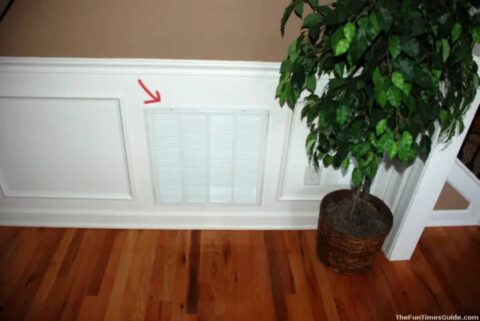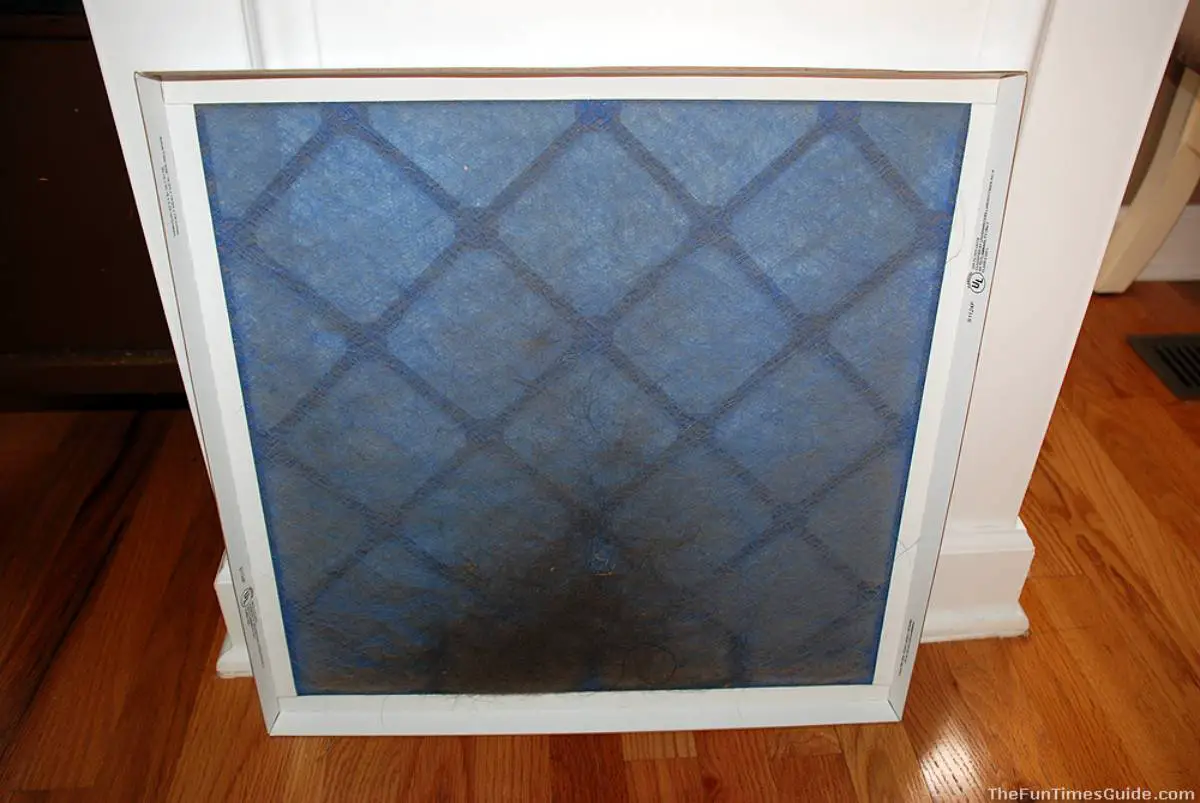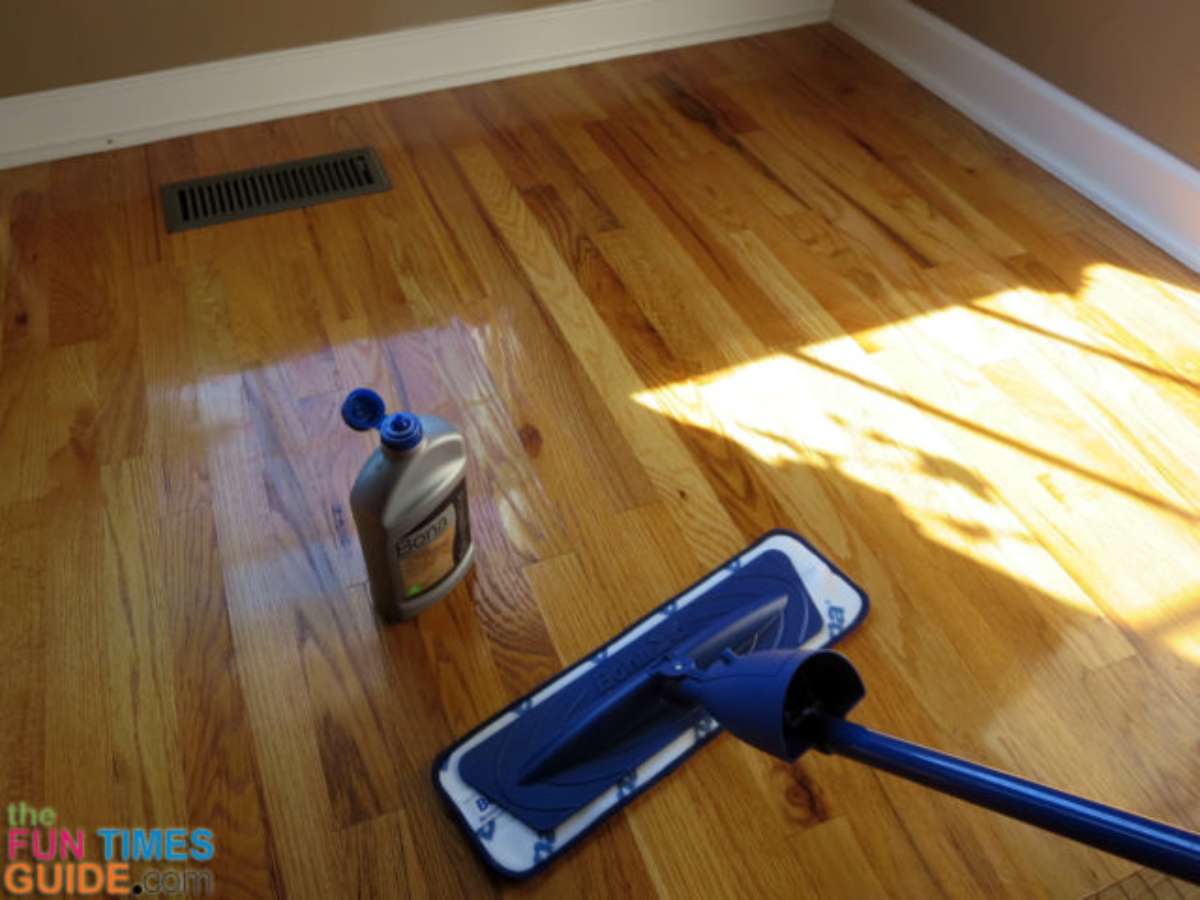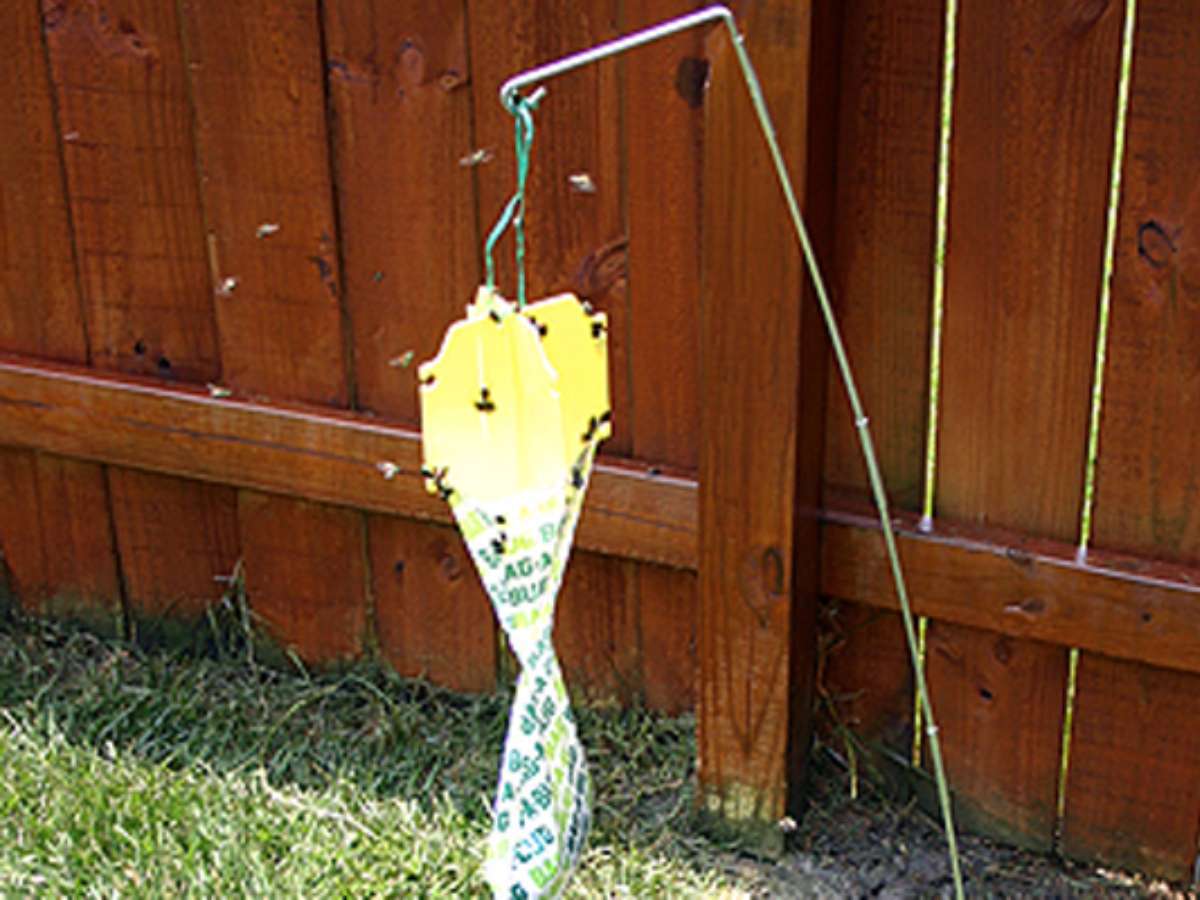
Most of us don’t change the air filters in our home furnace / HVAC system as frequently as we’re supposed to. (I know I don’t.)
Generally, most 1” furnace filters should be changed at least every 2 to 3 months. Larger, pleated cartridge-type furnace filters (3″ to 5″) can last up to 12 months between changes.
~ Source
Instead, we go several months at a time and only replace them whenever we start to see dust piling up on furniture faster than ever, or we happen to notice dust gathering on the furnace vents themselves! (Am I right?)
However, proper home air filtration requires that you change the air filters in your home on a regular basis, before you start to see evidence that’s it’s been awhile since you last changed them.
On top of that, most people don’t really understand the differences between the cheaper air filters and higher-quality ones. For years, I used those cheap $1.98 fiberglass air filters for all the air vents in our home. (You know, those bright blue ones that are encased in a flimsy cardboard frame.)

If I only knew then what I know now!…
Not only can home air filtration be a matter of life and death for those who suffer from a multitude of respiratory conditions, but even those considered normal and healthy can benefit from cleaner, dust-free, and allergen-free air.
By removing pollutants from the air (both chemical and environmental ones), your family will be able to breathe cleaner air on a daily basis and your electricity bills will be lower too — because your HVAC unit won’t have to work so hard.
Here’s everything you need to know about home air filtration, plus tips for choosing the best air filters…
Home Air Filter Ratings
Mechanical air filters are the most common type of home air filters used in residential HVAC systems.
These filters use synthetic fibers to trap small particles, debris, and dust, among other things — preventing those things from circulating in the air and getting into our lungs.
The effectiveness of a mechanical air filter is measured in MERV ratings (Minimum Efficiency Reporting Value). Generally speaking, the cheaper the filter is, the lower the MERV number is. In other words, you get what you pay for. Air filters with lower MERV ratings need to be replaced more frequently.
Mechanical air filters remove dust by capturing it on the filter medium, the material that makes up the filter element. A mechanical air filter is any type of dry media filter. All of the throwaway air filters used in HVAC systems and Air Handlers are mechanical air filters. Any man made or natural fiber filter is a mechanical air filter. This includes HEPA air filters as well.
~ Source
Types Of Mechanical Air Filters
Mechanical air filters include the following:
- Fiberglass air filters are very thin and they have a simple flat panel surface for trapping particles from the air. They were originally developed to protect your heating and air conditioning equipment, not to improve your indoor air quality. They can often be purchased for less than $1 apiece. Unfortunately, they remove less than 10% of the air pollutants from your home. They have a MERV rating between 1 and 4.
Watch this short video on the importance of good filters. You will see how little the cheap air filters actually keep out.
- Pleated air filters remove up to 45% of the air pollutants from your home. The number of pleats per foot impact their overall efficiency. They usually cost around $10 each. They have a MERV rating of 10 to 13.
The filter with more pleats per foot across the face will allow you to have better airflow throughout your home. The more air that flows through your house, the more often it is passed and re-circulated through the filter. The end result is cleaner air because of the higher frequency of air passes through the filter. For example, if you could find a way to install a hospital grade operating room filter in your home unit, it wouldn’t do you much good because your fan and motor doesn’t have enough power to push enough air through it. A good quality filter with a high MERV 11 rating can actually leave you with dirtier air than using a cheap 1 dollar filter if the MERV 11 filter doesn’t have enough pleats per foot. Less pleats per foot is a cheap and dirty way for filter sellers to trick buyers into thinking they are getting a better deal. Insist on MERV 11 filters that have a minimum of 18 pleats per foot!
~ Source
- High-efficiency air filters are the most practical air filters for most residential HVAC systems, removing up to 85% of the air pollutants from your home. They have a MERV rating between 14 and 16.
These filters can trap very small particles of dust, pollen, mold, and other irritants. Some of these filters work much like the air and oil filters in your car. They are made using pleated filter paper. Other filters are made with fine synthetic polyester fibers. Higher efficiency air filters can sometimes be coated with chemicals that can kill tiny microbes such as bacteria and mold. There are several advantages to using these higher efficiency air filters. Not only will your heating and cooling equipment perform better, your operating costs may well be lower. The air you breathe will be cleaner, as will your furniture and drapes. That $60 service call could have bought 10 filters that may have lasted through five cooling seasons!
~ Source
- True HEPA (or High Efficiency Particulate Air) filters provide the best filtration for your home by removing up to 98% of air pollutants from your home. They have a MERV rating between 17 and 20. However, they can only be used in a whole house filtration system or a standalone air purifier.
Unfortunately, HEPA filters restrict too much air to be used as a traditional furnace filter. A HEPA filter is extremely efficient, but a significant amount of air pressure is needed to force air through a HEPA filter. A typical HVAC system will not be equipped to provide enough air pressure to use a HEPA filter (which basically means that no air would blow out of your registers). In order to use a HEPA filter for whole house filtration, you need to install a separate HEPA filtration system. A system like this will pull some of the air out of the regular air flow through your furnace, and then boost the air and pass it through a HEPA filter. The extremely filtered air is then returned back into the normal air flow.
~ Source
Microns = The Size Of Particles Captured
If you’re wondering whether you can eliminate the need for dusting by choosing air filters with better micron ratings, the fact is that better quality air filters will reduce the need for dusting, but they won’t eliminate it.
Dust in the air contains particulates that range in size from very small (0.001 micron) to very large (100 microns).
So, while the smaller dust particles inside your home may be captured by the air filters, unfortunately, due of the weight of the larger dust particles in the air, they will settle on your furniture long before they could reach your air filter.
Cheaper fiberglass filters are better at trapping larger particles (up to 10 microns), but not smaller particles.
Better high-efficiency air filters are better at trapping smaller particles (down to .3 microns), but not the larger particles. The smaller ones are usually the most harmful.
To help put this into perspective, a hair from your head is about 60-75 microns in diameter. Particles under 35 microns are not visible to the naked eye. You can’t see most of the contaminants in the air. Pollen particles can range from 10 to 100 microns in size; dust from 0.5 to 5 microns; human dander, 10 microns or higher; etc. The majority of harmful particles are less than 5 microns in size.
~ Source
Indoor Air Quality Matters!
Indoor air pollution ranks among the top 5 environmental health risks. It makes sense to take the issue seriously and provide the best possible air filtration system for your family.
Stay away from the cheap bargain furnace filters. Instead, opt for pleated high-efficiency air filters with a MERV rating of 8 or higher and at least 10 pleats per foot.
Not only will your family be healthier, but you won’t have to dust the knick knack shelves every other day either. It doesn’t get much better than that!




